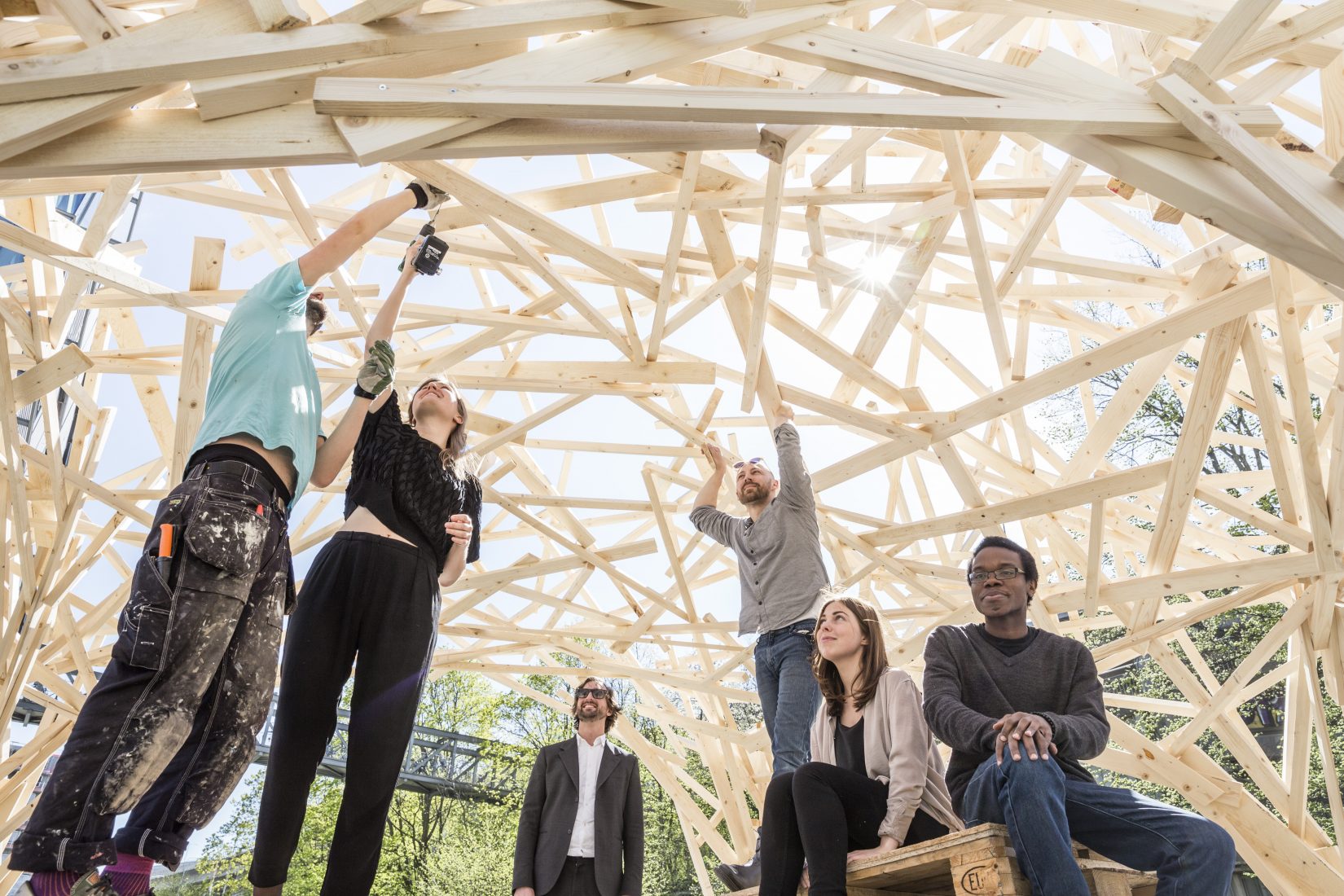We need to learn from different local contexts to target specific architectural questions on a wider level. Challenges regarding sustainability and resilience can be core creative forces and work as catalysts for system change – and future shifts in mindsets, tools and implementation.
Everything starts in every citizens close environment, everyday life and neighbourhood – and only interdisciplinary networks and open processes will make a local and global “Togetherhood” possible.
Presented by: Architects Sweden in collaboration with White arkitekter
Host and Moderator:
Monica Von Schmalensee, Architect, Senior Advisor, White arkitekter
Is a togetherhood achievable, and how do we create “togetherhoods” out of our neighborhoods?
Speakers – presentation of cases and examples:
Christian Pagh, Curator and Director Oslo Architecture Triennale, theme: Mission Neigbourhood
Christian Pagh is a graduate in modern culture and philosophy and before his new position at the Triennale he was partner and culture director in the strategic design office Urgent.Agency. The Oslo Architecture Triennale 2022 will, in a time when the world is facing major social and environmental challenges, spotlight neighbourhood as a place and horizon for rethinking our cities. With the working title Mission Neighbourhood – (Re)forming communities, the Triennale will explore how we form the places we share.
Hana Kasem, Architect, Principal, KPF New York
Hana Kassem has applied a human-centric approach to design across various project typologies over her 25-year career as an architect. She examines how we affect our environment and how in turn our built environment impacts us. Her international background has afforded her the ability to tailor her design work to various cultural contexts while maintaining universal commonalities. Hana serves on the AIANY and the Van Alen Institute Board of Trustees.
Robin Rushdi-Al-Salehi, Founder of Vakansa, a local sharing platform
Robin Rushdi Al-sálehi is the founder of the local sharing platform Vakansa, sustainability consultant and freelance writer. Among other things, he has coined the term ABCDE city:
“The ABCDE city is the city that the pandemic has forced us to, which digitalization has made possible and for which the ecosystem provides its limitations. The city needs to go from being the resource-consuming entity it is today to becoming a climate-positive one in harmony with nature. The city needs to go from adapting people to the city, to adapting the city to the people. The city does not need to be segregated according to its various functions but shared by as many people as possible in a multifunctional way throughout the waking hours of the day. The future can be sustainable, but only if we learn to continue to change even after the pandemic”.
Farzana Gandhi, AIA LEED AP, Principal Architect, Farzana Gandhi Design Studio, Associate Professor of Architecture, New York Institute of Technology and co-founder of Collective Infrastructures.
Farzana Gandhi Design Studio is a NYC based architecture and urban planning practice with a deep commitment to open and inclusive design processes and community engagement. Farzana confronts complex societal challenges with unique comprehensive response. Her work coordinates a rethinking of social, political, economic, cultural, environmental, and technological contexts in disaster-hit and/or disadvantaged neighborhoods locally in NYC as well as around the globe. The creative team includes experts that can create overlapping frameworks to build community-based social and environmental resiliency.”Working hand-in-hand as Collective, we empower end users with multiple and reinforcing Infrastructures“.
Finn Williams, City Architect of Malmö.
Finn was previously a prominent advocate for public architecture and planning in the UK through roles at Croydon Council and the Greater London Authority, and as the co-founder and chief executive of Public Practice, a not-for-profit organisation building the public sector’s capacity to improve the quality and equality of everyday places. Finn has a solid track-record of different planning missions in the UK. He is also a Visiting Professor at the Institute of Innovation & Public Purpose at UCL, and was co-curator of the British Pavilion at the 2016 Venice Architecture Biennale. Finn will be speaking about Malmö’s work to build spatial equality and inclusion by understanding and working with the existing values of neighbourhoods and their communities.
Reflection:
Carl Bäckstrand, Deputy CEO, White Arkitekter and Architects Sweden representative in ACE (Architects Council Europe).
Short presentation of New European Bauhaus – a catalyst for change towards sustainable societies.
The New European Bauhaus is a creative and interdisciplinary movement in the making – shaping more beautiful sustainable and inclusive forms of living together. It connects the European Green Deal to our living spaces. It calls on all Europeans to imagine and build together a sustainable and inclusive future that is beautiful for our eyes, our minds and our souls.
Link to the seminar: https://svenskainstitutet.zoom.us/j/81600819390
Woodlife Sweden at Archtober is presented by the Swedish Design Movement and is arranged by the Swedish Institute, Architects Sweden, and the Consulate General of Sweden in New York in collaboration with Swedish Wood, Swedish Forest Industries, Arvet and White Arkitekter
